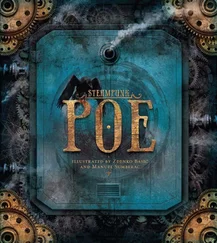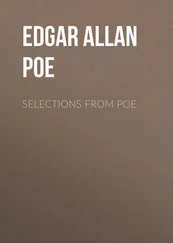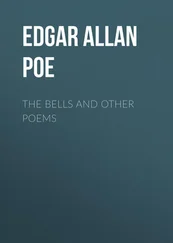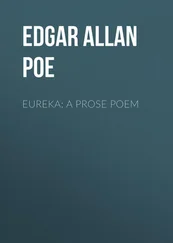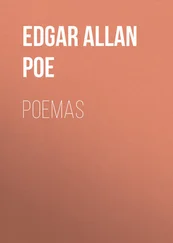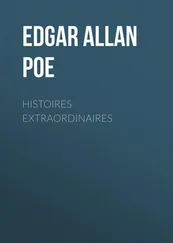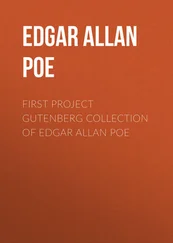Edgar Poe - CRITICISM
Здесь есть возможность читать онлайн «Edgar Poe - CRITICISM» весь текст электронной книги совершенно бесплатно (целиком полную версию без сокращений). В некоторых случаях можно слушать аудио, скачать через торрент в формате fb2 и присутствует краткое содержание. Жанр: на английском языке. Описание произведения, (предисловие) а так же отзывы посетителей доступны на портале библиотеки ЛибКат.
- Название:CRITICISM
- Автор:
- Жанр:
- Год:неизвестен
- ISBN:нет данных
- Рейтинг книги:3 / 5. Голосов: 1
-
Избранное:Добавить в избранное
- Отзывы:
-
Ваша оценка:
- 60
- 1
- 2
- 3
- 4
- 5
CRITICISM: краткое содержание, описание и аннотация
Предлагаем к чтению аннотацию, описание, краткое содержание или предисловие (зависит от того, что написал сам автор книги «CRITICISM»). Если вы не нашли необходимую информацию о книге — напишите в комментариях, мы постараемся отыскать её.
CRITICISM — читать онлайн бесплатно полную книгу (весь текст) целиком
Ниже представлен текст книги, разбитый по страницам. Система сохранения места последней прочитанной страницы, позволяет с удобством читать онлайн бесплатно книгу «CRITICISM», без необходимости каждый раз заново искать на чём Вы остановились. Поставьте закладку, и сможете в любой момент перейти на страницу, на которой закончили чтение.
Интервал:
Закладка:
CRITICISM
Edgar Allan Poe
IT HAS been said that a good critique on a poem may be written by one who is no poet himself. This, according to your idea and mine of poetry, I feel to be false- the less poetical the critic, the less just the critique, and the converse. On this account, and because the world's good opinion as proud of your own. Another than yourself might here observe, "Shakespeare is in possession of the world's good opinion, and yet Shakespeare is the greatest of poets. It appears then that as the world judges correctly, why should you be ashamed of their favourable judgment?" The difficulty lies in the interpretation of the word "judgment" or "opinion." The opinion is the world's, truly, but it may be called theirs as a man would call a book his, having bought it; he did not write the book, but it is his; they did not originate the opinion, but it is theirs. A fool, for example, thinks Shakespeare a great poet- yet the fool has never read Shakespeare. But the fool's neighbor, who is a step higher on the Andes of the mind, whose head (that is to say, his more exalted thought) is too far above the fool to be seen or understood, but whose feet (by which I mean his every-day actions) are sufficiently near to be discerned, and by means of which that superiority is ascertained, which but for them would never have been discovered- this neighbor asserts that Shakespeare is a great poet- the fool believes him, and it is henceforward his opinion. This neighbor's own opinion has, in like manner, been adopted from one above him, and so, ascendingly, to a few gifted individuals who kneel around the summit, beholding, face to face, the master spirit who stands upon the pinnacle...
You are aware of the great barrier in the path of an American writer. He is read, if at all, in preference to the combined and established wit of the world. I say established; for it is with literature as with law or empire- an established name is an estate in tenure, or a throne in possession. Besides, one might suppose that books, like their authors, improve by travel- their having crossed the sea is, with us, so great a distinction. Our antiquaries abandon time for distance; our very fops glance from the binding to the bottom of the title-page, where the mystic characters which spell London, Paris, or Genoa, are precisely so many letters of recommendation.
I mentioned just now a vulgar error as regards criticism. I think the notion that no poet can form a correct estimate of his own writings is another. I remarked before that in proportion to the poetical talent would be the justice of a critique upon poetry. Therefore a bad poet would, I grant, make a false critique, and his self-love would infallibly bias his little judgment in his favour; but a poet, who is indeed a poet, could not, I think, fail of making a just critique; whatever should be deducted on the score of self-love might be replaced on account of his intimate acquaintance with the subject; in short, we have more instances of false criticism than of just where one's own writings are the test, simply because we have more bad poets than good. There are, of course, many objections to what I say: Milton is a great example of the contrary, but his opinion with respect to the Paradise Regained is by no means fairly ascertained. By what trivial circumstances men are often led to assert what they do not really believe! Perhaps an inadvertent world has descended to posterity. But, in fact, the Paradise Regained is little, if at all inferior to the Paradise Lost and is only supposed so to be because men do not like epics, whatever they may say to the contrary, and reading those of Milton in their natural order, are too much wearied with the first to derive any pleasure from the second.
I dare say Milton preferred Comos to either- if so- justly...
As I am speaking of poetry, it will not be amiss to touch slightly upon the most singular heresy in its modern history- the heresy of what is called, very foolishly, the Lake School. Some years ago I might have been induced, by an occasion like the present, to attempt a formal refutation of their doctrine; at present it would be a work of supererogation. The wise must bow to the wisdom of such men as Coleridge and Southey, but being wise, have laughed at poetical theories so prosaically exemplified.
Aristotle, with singular assurance, has declared poetry the most philosophical of all writings- but it required a Wordsworth to pronounce it the most metaphysical. He seems to think that the end of poetry is, or should be, instruction; yet it is a truism that the end of our existence is happiness; if so, the end of every separate part of our existence, everything connected with our existence, should be happiness. Therefore the end of instruction should be happiness; and happiness is another name for pleasure,- therefore the end of instruction should be pleasure; yet we see the above-mentioned opinion implies precisely the reverse.
To proceed: ceteris paribus, he who pleases is of more importance to his fellow-men than he who instructs, since utility is happiness, and pleasure is the end already obtained while instruction is merely the means of obtaining.
I see no reason, then, why our metaphysical poets should plume themselves so much on the utility of their works, unless indeed they refer to instruction with eternity in view; in which case, sincere respect for their piety would not allow me to express my contempt for their judgement; contempt which it would be difficult to conceal, since their writings are professedly to be understood by the few, and it is the many who stand in need of salvation. In such case I should no doubt be tempted to think of the devil in "Melmoth," who labours indefatigably, through three octavo volumes, to accomplish the destruction of one or two souls, while any common devil would have demolished one or two thousand.
Against the subtleties which would make poetry a study- not a passion- it becomes the metaphysician to reason- but the poet to protest. Yet Wordsworth and Coleridge are men in years; the one imbued in contemplating from his childhood, the other a giant in intellect and learning. The diffidence, then, with which I venture to dispute their authority would be overwhelming did I not feel, from the bottom of my heart, that learning has little to do with the imagination- intellect with the passions- or age with poetry.
Trifles, like straws, upon the surface flow;
He who would search for pearls must dive below, are lines which have done much mischief. As regards the greater truths, men oftener err by seeking them at the bottom than at the top; Truth lies in the huge abysses where wisdom is sought- not in the palpable palaces where she is found. The ancients were not always right in hiding the goddess in a well; witness the light which Bacon has thrown upon philosophy; witness the principles of our divine faith- that moral mechanism by which the simplicity of a child may overbalance the wisdom of a man.
We see an instance of Coleridge's liability to err, in his Biographia Literaria- professedly his literary life and opinions, but, in fact, a treatise de omni scibili et quibusdam aliis. He goes wrong by reason of his very profundity, and of his error we have a natural type in the contemplation of a star. He who regards it directly and intensely sees, it is true, the star, but it is the star without a ray- while he who surveys it less inquisitively is conscious of all for which the star is useful to us below- its brilliancy and its beauty.
As to Wordsworth, I have no faith in him. That he had in youth the feelings of a poet I believe- for there are glimpses of extreme delicacy in his writings- (and delicacy is the poet's own kingdom- his El Dorado)- but they have the appearance of a better day recollected; and glimpses, at best, are little evidence of present poetic fire- we know that a few straggling flowers spring up daily in the crevices of the glacier.
Читать дальшеИнтервал:
Закладка:
Похожие книги на «CRITICISM»
Представляем Вашему вниманию похожие книги на «CRITICISM» списком для выбора. Мы отобрали схожую по названию и смыслу литературу в надежде предоставить читателям больше вариантов отыскать новые, интересные, ещё непрочитанные произведения.
Обсуждение, отзывы о книге «CRITICISM» и просто собственные мнения читателей. Оставьте ваши комментарии, напишите, что Вы думаете о произведении, его смысле или главных героях. Укажите что конкретно понравилось, а что нет, и почему Вы так считаете.

